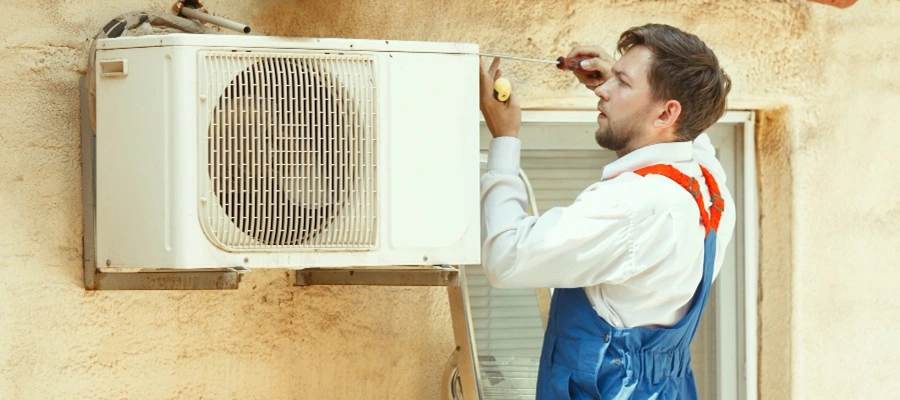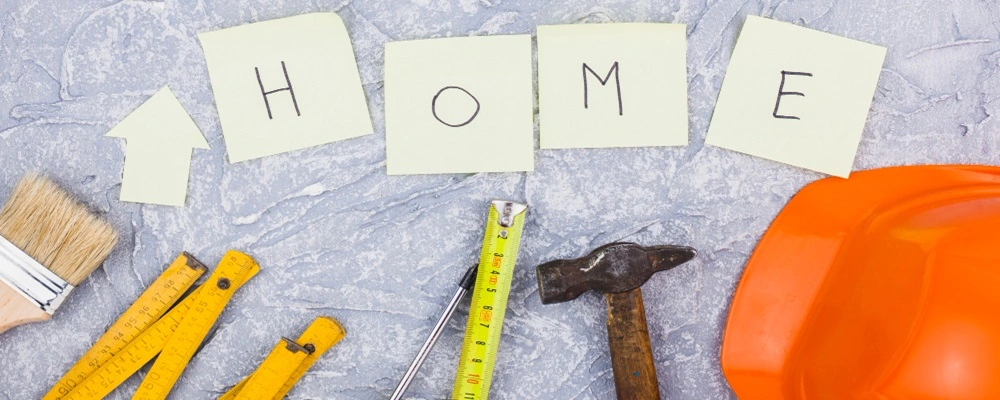Once you own a house, you feel relaxed and satisfied. Although the new house construction process seems daunting, there is much more to becoming a homeowner than simply constructing a new home. Home maintenance and repairs might seem like a huge hassle at first. However, their outcome is consistently satisfying. A regular home maintenance schedule for your home will end up saving you money. Hence, its recommended to upkeep your home regularly.
If you don’t have any experience and don’t know how to maintain your home, don’t worry. Brick & Bolt provides easy home maintenance tips for your DIY home maintenance.
But, before jumping to the home maintenance tips, let’s understand why regular home upkeep is important.
Why is Regular Home Maintenance Necessary?
Your regular home maintenance and repair will give you numerous benefits, including-
- Increases the value of your house or apartment
- Creates a better living experience for you
- Provides protection for your home from additional damage
- You will end up saving money in the long run.
- It helps to keep pests away from your home.
10 Easy Home Maintenance Tips
The following home maintenance tips will help you to upkeep your home.
- Upkeep of the Exterior of Your Home
- Clean Your Appliances Frequently
- Upkeep your HVAC Systems
- Maintain Bathroom Exhaust Fans
- Conduct an Energy Audit in Your Home
- Inspect and Correct Plumbing Problems
- Stop Drafts and Leaks
- Regularly Maintain the Grout
- Observe the Foundation of Your House
- Inspect Your Basement and Attic Frequently
Let’s explore all the house maintenance tips.
1. Upkeep of the Exterior of Your Home
Your home exterior also needs maintenance. Hence, you must periodically inspect the roof for missing or broken shingles and replace them as needed. You can paint your exterior with vibrant colours to protect it from different weather conditions and enhance its aesthetic appeal. Maintain neat landscaping to avoid tree roots harming the foundation of your house.
2. Clean Your Appliances Frequently
As we all know, appliances have a limited lifetime, so routine maintenance and cleaning may significantly extend their life. These parts, which range from the filters in your air conditioner to the coils in your refrigerator, may gather dust and debris over time, decreasing their effectiveness and efficiency. Maintaining these components guarantees that your appliances operate at their best and cut down on wasteful energy use.
3. Upkeep your HVAC Systems

Regular maintenance is required to keep your HVAC -heating, ventilation, and air conditioning system, operating at its best. An HVAC system with inadequate maintenance might use more energy and last less time. Professional maintenance can keep it in excellent operating condition and assist you in identifying any issues before they become expensive repairs.
4. Maintain Bathroom Exhaust Fans
Exhaust fans are essential for keeping bathrooms dry and avoiding the formation of mildew. Regular cleaning and checking of the fans’ functionality is crucial. If they’re not functioning well, there’s a greater chance of mold growth, which may be costly to treat.
5. Conduct an Energy Audit in Your Home
Undertaking a home energy audit is a practical approach to reducing energy costs. An expert energy examination determines how much energy your house uses and how to make it more energy-efficient. This might include suggestions for replacing outdated appliances with energy-efficient replacements, caulking windows and doors, and enhancing insulation. By conducting a home energy audit, you can identify energy-wasting areas in your house, and by making the required changes, you can save money over time.
6. Inspect and Correct Plumbing Problems
If plumbing problems are not addressed, they may result in costly repairs and significant water damage. Check often for drips, leaks, or low water pressure. By addressing these problems, you may prevent more serious difficulties later on, such as the formation of mold or structural damage from leaks.
7. Stop Drafts and Leaks
Another effective strategy to reduce energy expenses is to seal up drafts and leaks in your house. Drafty doors and windows make it easier for heat to leave in the winter and warm air to enter in the summer, which increases the workload of your heating and cooling systems. You may save energy and increase the longevity of your heating and cooling systems by caulking or weatherstripping these drafts.
8. Regularly Maintain the Grout
Mold and mildew may grow rapidly on grout in bathrooms and kitchens. You can prevent mold growth, preserve the integrity of the tiles, and maintain the original appearance of your areas by routinely cleaning and sealing them.
9. Observe the Foundation of Your House
If you neglect the health of your home foundation, foundation issues may result in major and costly consequences. Hence, look out for wall cracks, uneven flooring, and poorly closed doors. These can indicate that the foundation is changing. Future repairs that are more expensive may be avoided with early diagnosis and correction.
10. Inspect Your Basement and Attic Frequently
These frequently ignored parts of the home may be the first to show signs of more serious concerns, such as structural difficulties or the development of mold. Frequent inspections may guarantee the early identification of bugs, insulation gaps, and moisture issues. By addressing these problems early on, more serious and expensive concerns may be avoided later on.
Conclusion
Although it may seem time-consuming and tiresome, house upkeep is an essential duty for homeowners. By following this home maintenance advice, you will eventually save money in addition to maintaining the worth of your house. We hope these home maintenance tips proves helpful to you and your family.

